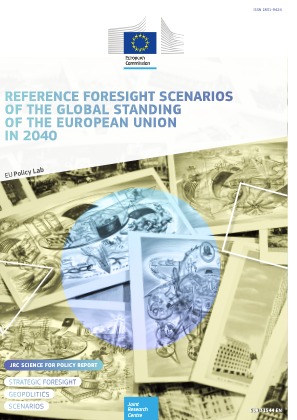Decision makers are faced with a world characterised by increasing turbulence, uncertainty, novelty, and ambiguity. These conditions make it more difficult to assess risks when making strategic decisions or planning for the long-term. This project from the European Commission Joint Research Centre (JRC) EU Policy Lab starting 2023 presents a foresight approach to increase preparedness for unexpected developments and the risks they could create.
Foresight methods offer a way to consider and focus on risks that may be beyond the scope of traditional quantitative and qualitative risk assessment approaches. Several snapshots of the future depict different worlds that have undergone substantial changes as a consequence of emerging developments. An analysis of the risks inherent in the possible futures identified ten risk clusters that are relevant for decision makers, and mapped future developments that might lead to them.The same development pathways that could lead to risks can also create opportunities, and the study provides some examples. Decision makers face the challenge of mitigating the adverse effects of risks, while reaping the benefits of potential opportunities. This study also presents the results of a Delphi survey that evaluated the scope and severity of risks. Three of the 40 risks identified in this study were assessed to be potentially existential for humanity: 1) environmental degradation, 2) environmental disasters, and 3) loss of power by humans. The project started in 2023 and will run until 2024.
Download the Risks on the horizon report
Read the blog post from the authors
The Polycrisis Exploration Workshop
The Polycrisis tool draws on insights from the Risks on the horizon foresight study. Collective intelligence exercises such as this can bring new knowledge and broader perspectives into policy making, sparking new ideas, and helping to co-create impactful interdisciplinary solutions. The workshop facilitates strategic conversations about current and future risks, disasters, and polycrisis.
You can use the tool to:
• Enhance risk awareness by exploring a broad spectrum of risks
• Map future polycrisis and explore their interconnected and cascading impacts in your area of work
• Identify policy interventions to mitigate risks.
Read instructions and download the materials
Read more from EU Policy Lab blog




